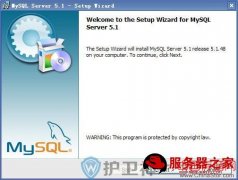本文介绍apache配置多主机头和虚拟目录,希望对于初学Apache服务器相关的朋友有帮助,更多Apache安装、配置、报错处理等资源请本站内搜索。
这里不提虚拟目录和主机头的区别了,不懂得童鞋去面壁思过吧
多个虚拟目录
首先把Apache安装到D:Program FilesApache2.2目录下,端口号设置为8080,安装完成后默认的网站根目录为D:Program FilesApache2.2htdocs,通常我们可以在htdocs下面建立个文件夹MySite,然后在浏览器输入:http://localhost:8080/MySite 这样就可以看到我们自己的站点了。然而有时我们想把站点放到其它目录下面,这时就需要配置虚拟目录了
比如我们在D盘建立如下文件夹D:CodeWebSite,然后通过http://localhost:8080/DemoSite来访问这个站点
打开httpd.conf文件,搜索<IfModule alias_module> 节点,然后在节点内输入以下内容:
#下面是虚拟目录声明格式
#Alias用来定义虚拟目录及虚拟目录路径,其中虚拟目录名称用于URL访问的路径别名,可以和虚拟目录名称不同
#<Directory/>节点用于定义目录的访问权限等
#
#Alias 虚拟目录名称 虚拟目录路径
#<Directory 虚拟目录路径>
# Options Indexes FollowSymLinks
# AllowOverride All
# Order allow,deny
# Allow from all
#</Directory>
#下面是具体的示例,/DemoSite是目录别名 "D:/Code/WebSite"是虚拟目录的实际路径
Alias /DemoSite "D:/Code/WebSite"
<Directory "D:/Code/WebSite">
Options Indexes FollowSymLinks
AllowOverride All
Order allow,deny
Allow from all
</Directory>
重启Apache服务后,在浏览器输入http://localhost:8080/DemoSite就可以正常访问了
这里需要注意下目录尽量使用"/",而不是使用"",原因就是""代表转义符有些情况下会导致莫名奇妙的错误,下面附上完整的<IfModule alias_module>节点以供参考
<IfModule alias_module>
#
Redirect: Allows you to tell clients about documents that used to
exist in your server's namespace, but do not anymore. The client
will make a new request for the document at its new location.
Example:
Redirect permanent /foo http://localhost/bar
#
Alias: Maps web paths into filesystem paths and is used to
access content that does not live under the DocumentRoot.
Example:
Alias /webpath /full/filesystem/path
#
If you include a trailing / on /webpath then the server will
require it to be present in the URL. You will also likely
need to provide a <Directory> section to allow access to
the filesystem path.
#
ScriptAlias: This controls which directories contain server scripts.
ScriptAliases are essentially the same as Aliases, except that
documents in the target directory are treated as applications and
run by the server when requested rather than as documents sent to the
client. The same rules about trailing "/" apply to ScriptAlias
directives as to Alias.
#
ScriptAlias /cgi-bin/ "D:/Program Files/Apache2.2/cgi-bin/"
Alias /DemoSite "D:/Code/WebSite"
<Directory "D:/Code/WebSite">
Options Indexes FollowSymLinks
AllowOverride All
Order allow,deny
Allow from all
</Directory>
</IfModule>
多主机头绑定
(就是在一个端口上绑定多个域名,然后每个域名可以指向不同的目录进行访问,主机头是IIS里面的说法),打开httpd.conf文件,在文件最后添加如下内容
#多主机头配置无需放在特定的节点下面,一般直接在配置文件底部添加即可
#NameVirtualHost addr[:port] 为一个基于域名的虚拟主机指定一个IP地址(和端口)
#声明主机头必须加这条指令,否者主机头配置不会生效
#VirtualHost节点下面ServerName就是要绑定的域名,DocumentRoot表示此域名指向的目录
#本机测试的话请在hosts中进行域名绑定如 127.0.0.1 www.mysite1.com
NameVirtualHost *:8080
<VirtualHost *:8080>
ServerName www.mysite1.com
DocumentRoot "D:Program FilesApache2.2htdocs"
</VirtualHost>
<VirtualHost *:8080>
ServerName www.mysite2.com
DocumentRoot "D:CodeMySite"
</VirtualHost>
配置好后,重启apache服务,浏览器输入www.mysite1.com:8080,就会自动定向到D:Program FilesApache2.2htdocs站点了
输入www.mysite2.com:8080就会自动定向到D:CodeMySite站点,如此就可以实现在一个服务器上同时运行多个站点
声明: 此文观点不代表本站立场;转载须要保留原文链接;版权疑问请联系我们。










